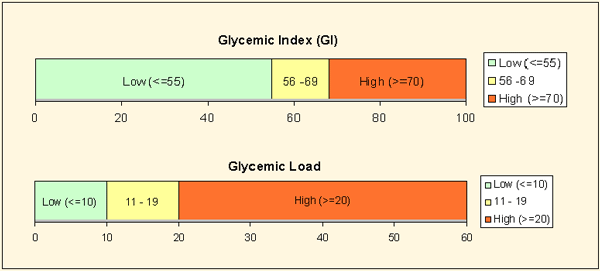Pomegranates are a delicious fruit that is high in fiber and antioxidants. But what about their glycemic index? Do they raise blood sugar levels? And how do they compare to other fruits? Here we will explore the nutritional facts of pomegranate, including its glycemic index, calories, net carbs and more.
What is the Glycemic Index of Pomegranate?
The Glycemic index is a measure of how quickly a food causes blood sugar to rise. Foods with a high glycemic index cause a rapid and large rise in blood sugar, while those with a low glycemic index cause a gradual and small rise. Diabetic patients with insulin resistance tend to have high blood sugar levels, even when they haven’t eaten for a while. This is because their bodies don’t make enough insulin or the insulin doesn’t work properly. When people with diabetes eat high glycemic index food, their blood sugar levels can spike very quickly.
Diabetics need to be aware of the GI of the foods they eat, as it can help them to manage their blood sugar levels. The recommended glycemic index for diabetics is below 55.
Pomegranates have a glycemic index of 53, which means that they cause a gradual rise in blood sugar levels. In fact, pomegranate is considered to have a low glycemic index compared to many other fruits, including oranges, grapes and bananas.
However, the glycemic index of a food is affected by many factors, including how ripe the fruit is, how it is cooked and what other foods are eaten with it.
Important nutritional characteristics for Pomegranate
Pomegranates are a good source of fiber, vitamins C and K, and they contain a variety of antioxidants. One pomegranate contains about 234 calories and 22 grams of carbohydrates. Of these carbohydrates, 16 grams are sugars and 5 grams are fiber, which means that pomegranates have a net carb content of 11 grams per fruit.
Health properties of pomegranate
Pomegranate has a multitude of health benefits, like being a good source of fiber, vitamins C and K, and folic acid. They also contain antioxidants and polyphenols, which have been linked to health benefits such as reduced inflammation, improved heart health and lower blood pressure.
Polyphenols are a type of phytonutrient, which are natural compounds that are found in fruits and vegetables. Pomegranates are a particularly rich source of polyphenols, with one study finding that they contain more than three times as many polyphenols as green tea. Studies have shown that polyphenols can help to improve insulin sensitivity and reduce blood sugar levels. They may also help to prevent some of the complications associated with diabetes, such as heart disease and stroke.
Some studies suggest that pomegranate may help improve blood flow, lower blood pressure and reduce the risk of heart disease. Pomegranate is also a rich source of antioxidants, which may help protect cells from damage. Additionally, pomegranate has been shown to have anti-inflammatory properties.
Pomegranate seed oil is a relatively new ingredient on the market, but it is already gaining popularity for its unique health properties. The oil is extracted from the seeds of the pomegranate fruit, and it is rich in a compound called punicic acid. Punicic acid is an omega-5 polyunsaturated fatty acid that has anti-inflammatory and antioxidant properties. It is also thought to promote heart health and improve skin elasticity. In addition, it can help to protect the skin from sun damage and boost collagen production.
As a result, pomegranate seed oil is often used in skincare products. However, the oil can also be consumed orally. Some research suggests that it may help to lower cholesterol levels and improve heart health.
What are the side effects of eating pomegranate?
Pomegranates are a delicious and healthy fruit that offer a wide range of health benefits. However, there are also a few side effects associated with eating pomegranates. For example, pomegranates contain a high level of acidity, which can lead to indigestion or heartburn in some people. Additionally, the seeds of the fruit can be a choking hazard for young children. Pomegranates may also cause an upset stomach or diarrhea in some people. They can also interact with certain medications, such as blood thinners.
As with anything else, moderation consumption is key when it comes to eating pomegranates. It is important to talk to your doctor before adding pomegranates to your diet if you have any medical conditions or are taking any medications.
Are pomegranates OK for diabetics? Research findings of the Diabetic Benefits of Pomegranate
According to the National Institutes of Health, diabetic complications are a leading cause of death and disability worldwide. In the United States alone, diabetic complications account for more than $245 billion in medical costs each year.
Pomegranates have been shown to offer a host of diabetic benefits, from lowering glycemic response to improving glucose metabolism. In one study, fresh pomegranate juice were found to ameliorate insulin resistance, enhance β-cell function, and decrease fasting serum glucose in type 2 diabetic patients. These findings suggest that pomegranate juice may help improve diabetic complications by lowering blood sugar levels and protecting against oxidative stress.
Do pomegranates raise or lower your blood sugar?
Another study looked at the effects of pomegranate extract on aerobic training in people with type 2 diabetes. The participants were given either a placebo or a pomegranate extract supplement daily for eight weeks. At the end of the study, those in the pomegranate group had better glucose tolerance and insulin sensitivity than those in the placebo group. They also had higher levels of adiponectin (a hormone that helps regulate glucose metabolism). These results suggest that pomegranate may help improve glucose metabolism in people with type 2 diabetes.
If you’re interested in adding pomegranate to your diet, talk to your doctor or dietitian first. They can help you determine if pomegranate is right for you and how to incorporate it into your meal plan.
How many pomegranates can a diabetic eat per day?
There is no definitive answer to this question as everyone’s diabetes may respond differently to pomegranates. However, the National Institutes of Health recommends that people with diabetes consult with a healthcare professional before adding pomegranates to their diet, as they can help to determine if pomegranate is right for you and how much you should consume.
In Conclusion
If you have diabetes, adding pomegranate to your daily diet is a great way to help moderate blood glucose levels and get a lower glycemic response when consuming other high glycemic index foods. Pomegranates are also a superfood packed with antioxidants, vitamins, and minerals, making them an excellent addition to any healthy diet. So add this superfood to your daily diet now!







